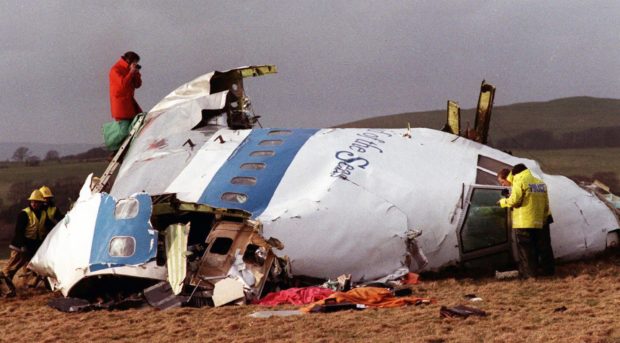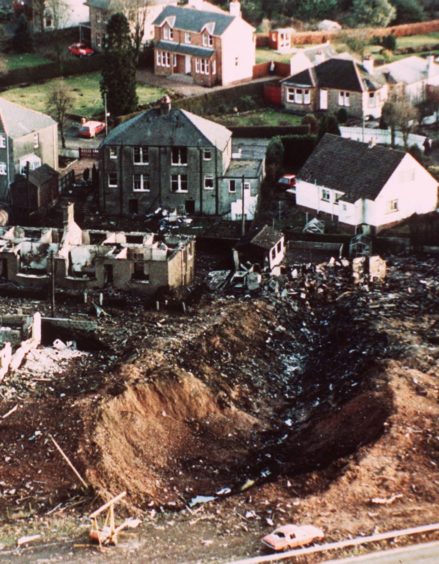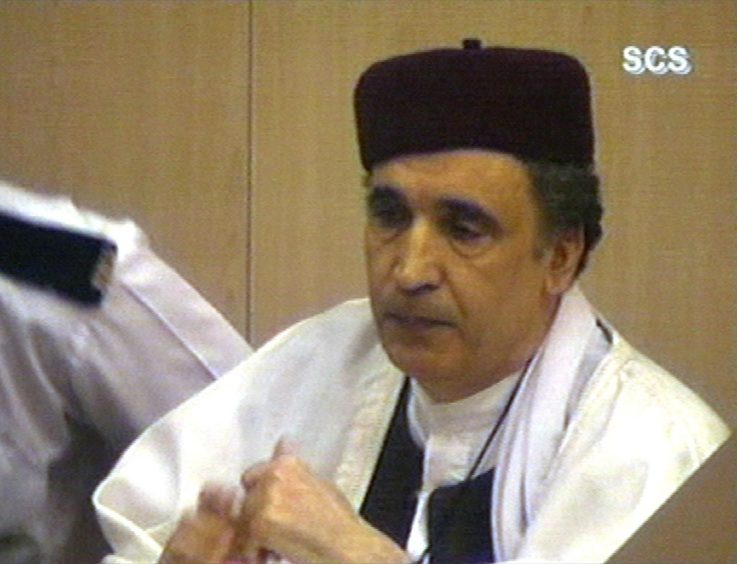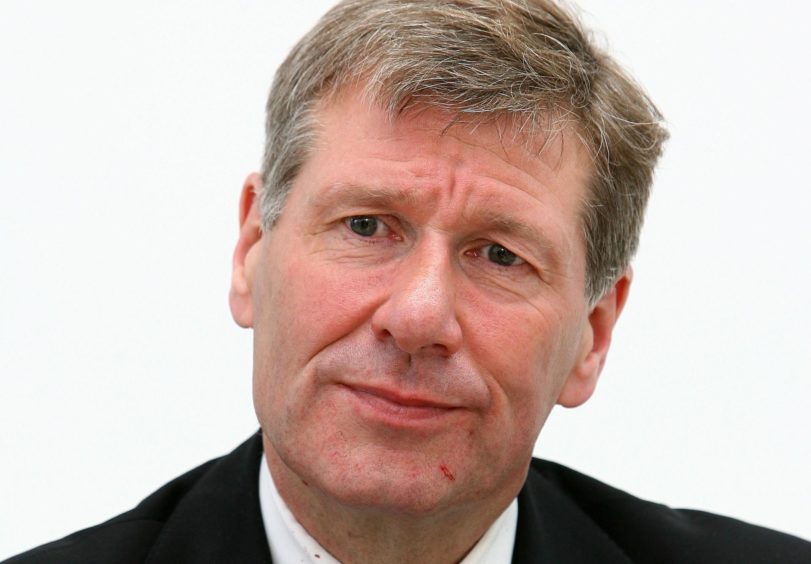The FBI agent who led the original Lockerbie investigation has revealed the atrocity’s latest suspect was on his “radar” 30 years ago but there was a struggle to prove the case against him.
Richard Marquise said it was strongly suspected Abu Agila Mohammad Masud was the “technician” responsible for the bomb that killed 270 people in the worst terrorist outrage committed on UK territory.
Mr Marquise was reacting to reports suggesting that US prosecutors will seek the extradition of Mr Masud and he will be charged in a matter of days, to stand trial in America.
As the man who led the US side of the inquiry into the bombing, Mr Marquise welcomed reports that Mr Masud could face justice, claiming any progress would be appreciated by the families who lost loved ones on Pan Am Flight 103.
“If there is going to be another trial, I’m sure the families will be… I’m not going to use the word thrilled…. because it doesn’t bring a loved one back. But I am sure they will be grateful,” Mr Marquise said.
The latest twist in the tragic saga, which has run since 259 passengers and 11 people on the ground were killed in a devastating explosion above Lockerbie on December 21 1988, has raised a series of questions.
These include: Who is the latest suspect? What is the evidence against him? Should others be in the dock? What can be read into the timing of extradition proceedings of a suspect believed to be imprisoned in Libya?
And what, if anything, might this mean for the appeal being taken by the late Abdelbaset al-Megrahi, the only person so far to be convicted for the mass murder?
Who is Abu Agila Mohammad Masud?
“He’s been on my radar for around 30 years,” Mr Marquise said. “He was someone we were very interested in, but we never quite found out who he was. The Libyans disavowed any knowledge of him. We knew he existed but he was never really identified.
“Back in 1991, we knew his name. We knew what he looked like and we knew what he allegedly was responsible for. He was the technician.”
The retired FBI agent added: “In my mind I always felt he was connected to it somehow But we didn’t have the clues to prove it.”
Kenny MacAskill, the former Justice Secretary who controversially released Megrahi on compassionate grounds, agreed.
“He was the one with the skills. He was on the original indictment, I’m led to believe. So he was always a wanted man,” Mr MacAskill said. “The idea that Megrahi did this on his own was absurd.”
Reports from the other side of the Atlantic suggest Mr Masud had been in custody in Libya on unrelated charges but his current whereabouts are unknown.
What evidence is there against Masud?
Since Mr Marquise’s official involvement in the investigation, there have been some developments. At the forefront of these have been the work of Ken Dornstein, a journalist whose brother David was on the London to New York flight.
In 2015 Mr Dornstein produced a investigative documentary, Lockerbie: My Brother’s Bomber, which linked Mr Masud to the bombing of Berlin’s La Belle nightclub in 1986.
Mr Dornstein interviewed a Libyan intelligence officer who said Mr Masud was involved in the bombing before the unification of Germany, which killed two US servicemen.
The same source alleged Mr Masud, by then in jail in Tripoli, was involved in the Lockerbie bombing and said he was still alive.
Mr Dornstein also claimed Mr Masud met Megrahi after the latter was freed from a Scottish jail in 2009 and given a hero’s welcome when he landed back in Libya.
There have also been claims that Mr Masud had travelled with Megrahi to Malta in December 1988, where prosecutors said the bomb that blew up Flight 103 had been assembled and packed into a suitcase, before being sent unaccompanied to London where it ended up on board the plane.
Should others be brought to justice for the atrocity?
Mr MacAskill has already made it plain that he believes that people other than Megrahi should be held to account for the bombing.
“Question arise as to why, if they are going for Masud, aren’t they going for Senussi?” asked the former Justice Secretary.
Mr MacAskill was referring to Abdullah Al Senussi, the late Libyan dictator Colonel Gaddafi’s brother-in-law and former spy chief who has long been associated with the crime.
“He’s a prisoner as well,” Mr MacAskill said of Senussi, describing him as Gaddafi’s “evil henchman”.
“I heard over recent years the view of the Libyans was they don’t like Senussi and they don’t like Masud, but giving them up to the Americans is a step too far,” Mr MacAskill said.
“I think this is probably the juncture for Britain and America to be a bit more open in information they do have and produce it, as opposed to hiding it.”
What can be read into the timing of Masud’s extradition?
That is an interesting question, according to Professor Robert Black, an the Edinburgh University legal academic who has been a keen student of the Lockerbie case.
Professor Black is regarded as the architect of the Scottish court that was set up in Camp Zeist, Netherlands, to try Megrahi and his co-accused, Al Amin Khalifa Fhimah, who was found not guilty.
“I wonder…. why now?” asked Professor Black. “Masud’s name has featured in the Lockerbie case since the very beginning, when charges were brought against Megrahi and Fhimah in 1991.”
“I think the answer to that is William Barr, the US Attorney General, is wanting to go out with a bang.”
This week it was announced that Mr Barr, who has been one of Donald Trump’s staunchest allies, is to step down as head of the US’s Justice Department.
Professor Black pointed out that Mr Barr was actually acting Attorney General way back in 1991 and was the one to announce that Megrahi and Fhimah were being charged.
“Now that he’s about to leave the scene, I think he wants to go out and his name to be remembered: Lockerbie at the beginning and Lockerbie at the end,” Professor Black said.
What, if anything, does this mean for Megrahi’s appeal?
Abdelbaset al Megrahi died in Libya in May 2012, some two years and nine months after his release from a Scottish jail suffering from prostate cancer – the disease that led to him being freed on compassionate grounds.
Since then his family have continued to maintain he was innocent. They requested a posthumous appeal against the conviction almost three years ago.
Earlier this year the Scottish Criminal Case Review Commission (SCCRC) said the family was now entitled to seek an appeal against his conviction and the case has been referred to the High Court of Justiciary.
Professor Black, who has long argued that Megrahi should not have been convicted on the evidence brought before Camp Zeist, suggested cynics might view attempts to extradite Musad as an attempt to make an impact on the appeal process.
Is this an American attempt to influence the judges to uphold the Megrahi conviction? That’s a very, very cynical view.”
Professor Robert Black
“The other possibility is that it is a blatant attempt to influence the Scottish judges because they have got the latest Megrahi appeal before them and we await their judgement,” Professor Black said.
The argument would be that the existence of another high-profile Libyan suspect, alongside Megrahi, would back up the case for Libyan involvement in the crime.
“Is this an American attempt to influence the judges to uphold the Megrahi conviction? That’s a very, very cynical view.”
But cynicism was how the development was greeted by Megrahi family’s lawyer, Aamer Anwar.
“It’s difficult not to be cynical about the motivation of the Americans, that on the eve of the anniversary of the Lockerbie bombing as well as the appeal decision, the US now wish to indict an individual, 32 years after the bombing, what exactly have they been doing up until now?” said Mr Anwar
“Why would the Attorney General William Barr wait until just as he is about to step down from the Justice Department, considering that he was involved with this case since 1991.”



